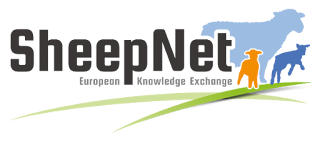A very happy festive period from all at JMICAWE
The team at JMICAWE would like to wish everyone a very happy
and relaxing holiday period, and to thank you all for your support over the
last 12 months.
It has been a year of highs and lows for us this year.
Tragically we lost our colleague, Fiona Rioja-Lang earlier this year, very
sadly missed but will not be forgotten for her passion and commitment to animal
welfare. Our administrator, Lucy Ewing, decided to move on to another post in
the University this year, but we welcomed kiwi, Katherine Curnow, in her place.
We were also lucky enough to have RVN Roxy Woodrow spend 6 months working with
us on veterinary nursing projects to support our existing nurses. In the wider
JMICAWE team we have also said goodbye to Louise Buckley and hello to Kirstin
McIlvaney and Verity Bowell in the MSc teaching team.
We have had a busy year delivering workshops, teaching and
training in many countries including Indonesia, Philippines, Vietnam, India,
South Africa, and China, and presented at conferences in UK, USA, Norway,
Canada, Czech Republic, Malta and Kenya. In particular Heather and Hayley
hosted the first Animal Behaviour, Welfare and Ethics day at British Small
Animal Veterinary Association conference, and Cathy presented at the British
Veterinary Association Animal Welfare Foundation discussion forum. Previous
JMICAWE director, Natalie Waran, was also still flying the flag for JMICAWE,
speaking at the OIE meeting in Bali, and at the Chinese Veterinary Medical
Association conference in Nanjing.
We have continued to give independent advice on animal
welfare issues to industry and government, with Cathy Dwyer attending meetings
of the EU Animal Welfare Platform in Brussels and being appointed as the first
Chair of the Scottish Animal Welfare Commission. Alongside our colleagues at
SRUC, we hosted a visit from the Minister for Rural Affairs and Natural
Environment, MSP Mhairi Gougeon, who has a particular interest in animal
welfare.
Finally we are delighted to be supporting our undergraduate
and postgraduate students in their studies, with successful student-led
conferences from the Dick Vet Animal Behaviour Society and the Animal Welfare
and Ethics Society, and more than 250 MSc students enrolled on animal behaviour
and welfare programmes.















































